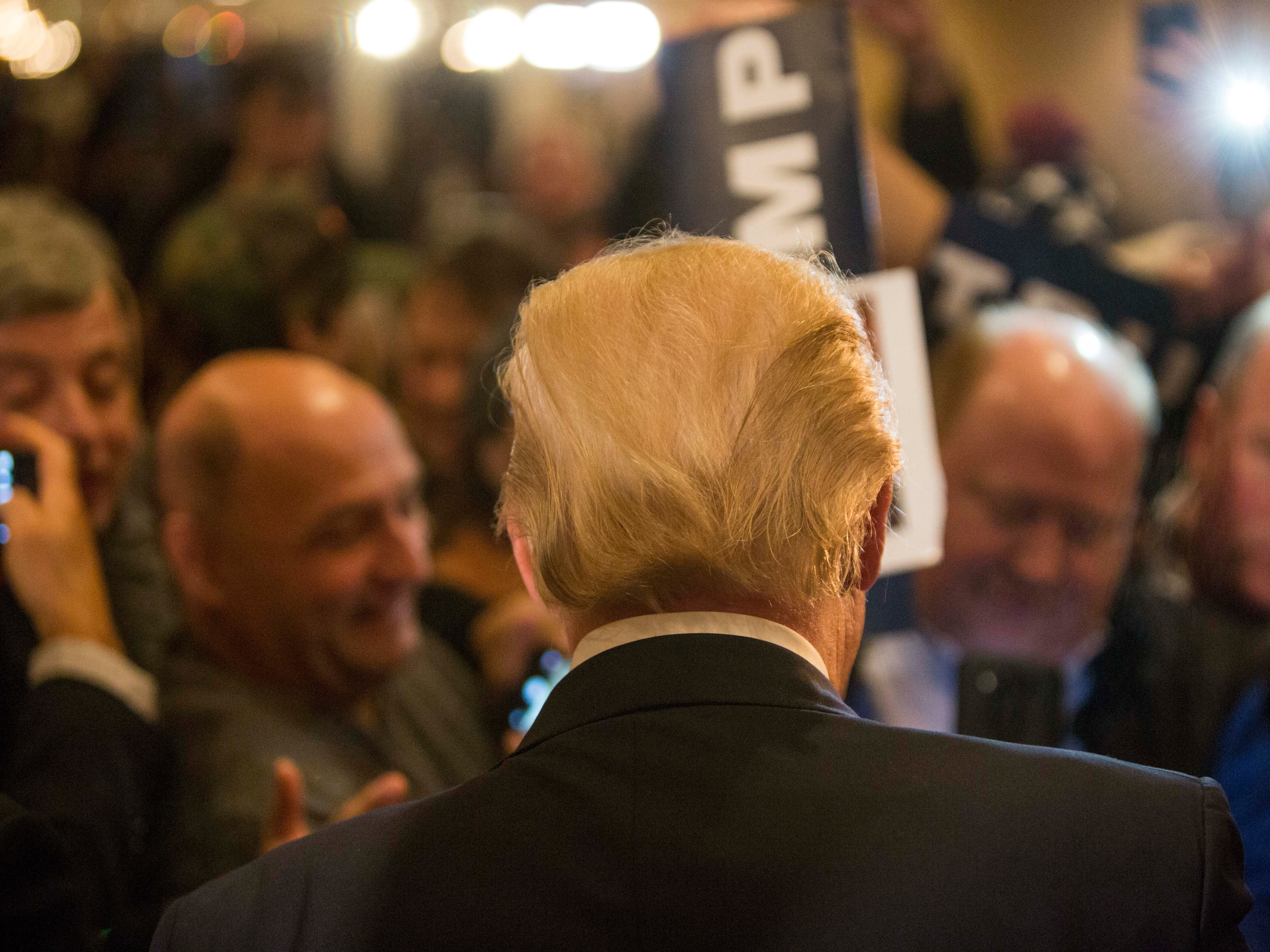After nine straight days of declines, stocks soared on Monday – right on the edge of the 2016 election.
The Mexican peso, which has become something of a gauge on Republican candidate Donald Trump’s prospects over the past couple of months, also took off, rising by about 2.0%.
The surge followed Sunday’s FBI announcement that it had concluded its probe into new emails found as part of its investigation of Democratic presidential candidate Hillary Clinton’s use of a private email server while she was secretary of state.
But that was Monday.
What everyone’s really thinking about now is Tuesday. And the rest of the week.
As things stand, the market seesHillary Clinton as a known player whose policies are expected to be largely a continuation of the Obama administration's. Trump and his economic positions, however, are less predictable and do not always follow party orthodoxy. And so he is perceived as more of a political risk.
Given those parameters, and the fact that major forecasters think a Clinton win is more likely, John Higgins, chief markets economist at Capital Economics, argued in a note that "a victory for Hillary Clinton in today's presidential election is now heavily discounted. As a result, it would trigger far less of a response in the markets than a surprise win for Donald Trump."
"Equities in the US would probably be boosted further by a Clinton victory, although we suspect that the upside would also be limited given their latest gains and the prospects for Fed policy and the dollar," he explained.
He added that the resulting stronger dollar would likely boost stocks in other developed markets, and that emerging market stocks could benefit from the likely increased risk-on posture.
As for a Trump win, Higgins argued that things could pull in the "opposite direction":
"For example, we think the S&P 500 would fall below 2,000, compared to a current level of around 2,130. And many stock market indices elsewhere would probably fare worse. The Nikkei 225 could be hit especially hard by accompanying strength in the yen - we wouldn't be surprised if it tumbled below 15,000, compared to a current level of more than 17,000. And there would probably a broad-based rout in emerging markets."
Deutsche Bank's macro strategist Alan Ruskin expressed similar sentiments with respect to currency markets, noting that "there is a case for zero cost one week risk reversal trades, where a Clinton victory is fully priced and where a (major) surprise Trump victory is under-priced."
As an example, he writes that the yen - a safe-haven currency that investors pour into during periods of uncertainty - "does not have the scope" to quickly dip to 106 per dollar amid a Clinton victory, while it "could easily head well above 102.40" if Trump wins.
In any case, overall, markets are bracing for volatility in the immediate aftermath of the election.

